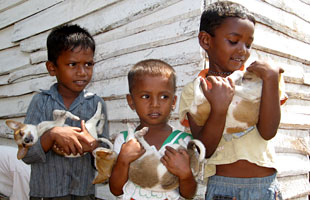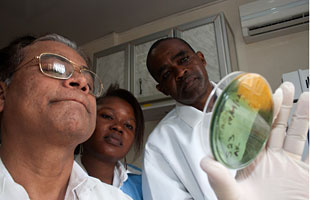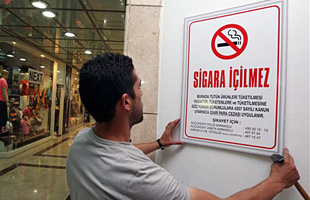Vaccinate dogs to save human lives from rabies
27 September 2012 -- On World Rabies Day, 28 September, rabies experts at WHO and around the world are highlighting dog vaccination programmes as the most effective way to reduce the risk of this disease that kills around 50 000 people every year. Worldwide, dog bites are the cause of almost all human rabies’ deaths, with a much smaller number of cases occurring each year from other domestic and wild animals, including bats.
Using emergency contraception
26 September 2012 -- Emergency contraception is intended for emergency use following unprotected intercourse, contraceptive failure or misuse (such as forgotten pills or torn condoms), rape or coerced sex. This recently updated fact sheet has information on when emergency contraception should be used as well as the differences in safety and effectiveness of the two WHO recommended methods of emergency contraception.
Cholera in Sierra Leone: the case study of an outbreak
24 September 2012 – Sierra Leone is in the midst of its worst cholera outbreak in 15 years. As of 19 September, there were more than 19 000 cases reported and 274 deaths. WHO and the Ministry of Health and Sanitation have established a cholera control and command centre to coordinate the response to what has turned into a national emergency.
Success in Turkey’s fight against noncommunicable diseases
21 September 2012 -- Just six years ago, more than one in three adults in Turkey used tobacco products, which greatly increase the risk of noncommunicable diseases such as cardiovascular disease, lung cancer, and chronic respiratory disease. But today Turkey is a success story. A new study of health professionals showing that more than 1 in 2 Turkish health managers have given up tobacco in the past 4 years, reflects what is being seen across the country.
WHO highlights
-
September 2012
Novel coronavirus infection
As of 25 September 2012, no additional cases of acute respiratory syndrome with renal failure due to infection with a novel coronavirus have been reported to WHO. WHO is continuing investigations into two recently confirmed infections identified as a novel coronavirus. Today WHO issued an interim case definition to help countries strengthen health protection measures against the new virus.
-
September 2012
New guidance for the prevention and management of postpartum haemorrhage
Postpartum haemorrhage (PPH) is a major cause of mortality, morbidity and long-term disability related to pregnancy and childbirth. WHO recommendations for the prevention and treatment provide a foundation for the implementation of effective interventions to reduce the burden of PPH.
Fact sheets
-
Child mortality
September 2012 -
Rabies
September 2012 -
Leprosy
September 2012
Features
Events
-
World Heart Day
29 September 2012 -
World Mental Health Day
10 October 2012 -
World Sight Day
13 October 2012
Corporate resources
-
The world health report
Report on global public health and key statistics -
World health statistics report
WHO's annual compilation of data from its Member States -
International travel and health
Publication on travel risks, precautions and vaccination requirements -
International Health Regulations (IHR)
Global rules to enhance national, regional and global public health security










